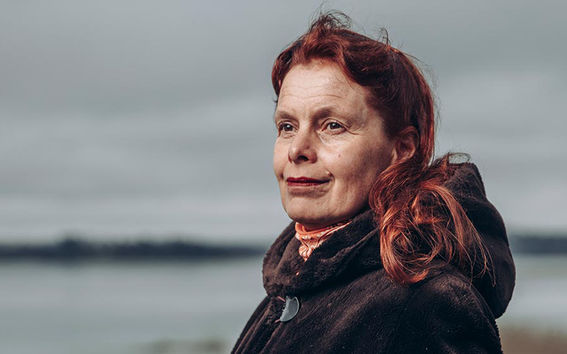'We need to make polluting costly'

Sanna Syri, Professor of Energy Technology and Economics:
I study large-scale energy systems, such as international electricity markets, as well as district heating systems. With my background as a specialist in curbing climate change, I’m interested in energy policy, the measures it involves and their impacts.
Together with my research group, I do a lot of work to sketch out scenarios for the energy systems of the future. Most recently, we mapped possible development trajectories up to 2030, and next we will be looking to the years 2040 and 2050. There are a lot of questions still open: Will the demand for electricity increase or decrease? What will happen to the price of electricity? Will Finland build more nuclear power stations? And will Sweden get rid of nuclear power altogether? Our goal is to be able to assess these different development trajectories and their pros and cons as accurately as possible.
It is certain that radical, large-scale changes will be needed in the near future. According to the report published by the Intergovernmental Panel on Climate Change (IPCC) in October 2018, Europe has to quickly give up fossil fuels altogether if it wants to fulfil its part in keeping global warming below 1.5° Celsius.
Carbon trading has a key role here. During the depression, the prices of emission allowances dropped so low that the mechanism actually favoured more polluting fuels. Thankfully, prices have now increased, and a tonne of carbon dioxide currently costs around €20.
It is important that carbon trading becomes a credible mechanism. Polluting must be made costly ― permanently costly. This will mean that different actors will dare to invest and cleaner options will become more competitive. This change will take place through market mechanisms, without subsidies, which, according to our research, simply serve to fragment the market.
Directive measures must be ambitious and resolute; they must also have a sufficient geographical scope. In Central Europe, fossil fuels are used a lot for electricity and heat production so the first step in the right direction would be to replace coal with natural gas. All of Europe could also see an increase in solar power and wind power, as well as hopefully an increase in nuclear power and carbon capture in industries and power stations that are aiming for zero emissions.
The energy industry requires a wide variety of expertise and close cooperation between different sectors. It was a great moment when, soon after my arrival here, Aalto initiated a five-year, €12 million research programme on energy efficiency. Among other things, the programme included research on lighting technology, developing better materials for energy applications and promoting the use of wood for construction. We focused on Europe’s electricity markets and how to reduce their carbon dioxide emissions ― with great results. One doctoral candidate, for example, developed a model of the Nordic electricity market which we are still making use of in our research.
For me, training the experts of the future is the most important way to have an impact. Every year, I have around 300 students taking my bachelor’s level course, and I take around 100 master students to deeper learning. I want to give them a realistic perspective on large-scale energy systems and what can, and should, be done to change them.
Text: Minna Hölttä
From clean energy to personalized medicine – a book about the power of the university
The Aalto Effect is a tribute to the ambitious and uncompromising work of dozens of researchers.

Read more news
Soil Laboratory Exhibition – Exploring the Dialogue Between Human and the Earth in Utsjoki
Soil Laboratory explores the relationship between humans and the earth as a living landscape through ceramic practices in Utsjoki.
The Finnish Cultural Foundation awarded grants for science and art
A total of 15 individuals or groups from Aalto University received grants
Environmental Structure of the Year 2025 Award goes to Kalasatama-Pasila tramway
The award is given in recognition of meritorious design and implementation of the built environment. Experts from Aalto University developed sustainability solutions for the project.






